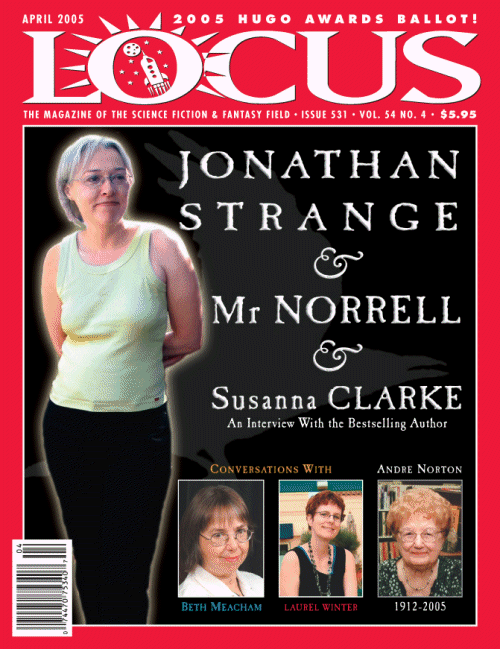ah je sens que je vais me le procurer ce magazine, ça a l'air intéressant... ! j'arrive dans les 100 dernières pages du bouquin... (il était tellement gros j'espérais que ça ne se terminerai jamais... malheureusement si, il y a une fin


)edit :bon bah... ça y est... il est où le smiley qui pleure ? c'est vraiment une aventure ce livre ! Tout d'abord des personnages...

Mr Norell... je l'aime bien quand même. Malgré tout ce qu'il a pu faire, je l'aime bien. Après tout au départ il ne demandait qu'à rester avec ses chers bouquins ! Et Strange... (je me demande si son nom va être traduit pour la version française? Jonathan Etrange ? yark ! ) tellement charismatique... on suit chacun de ses choix avec une attention extrême ! mais bon tous les personnages sont passionnants, Childermass, Stephen Black, le gentilhomme aux cheveux d'argent, Lady Pole... même Lascelles et Drawlight. (:rouge: désolée, je suis encore en plein dedans ! ) Ensuite ben le style... j'en ai déjà parlé je crois, ça me fait penser aux romans de la littérature 19è (tout ce que j'aime) avec cet humour un peu ironique. Enfin euh l'histoire, well, dans le cadre des guerres napoléoniennes, la magie, plein de légendes inventées, quelques personnages historiques... tout ça se mélange avec un bonheur assez remarquable ! voilà voilà

je ne sais pas quoi dire de négatif sur ce livre, à par peut-être quelques longueurs après le début de l'action, quand M. Norell est encore le seul magicien à Londres. je vous le conseille donc




 Et si je compte bien... 1, 2, 3... Oui, il y avait (au moins) trois forumeurs en cours de lecture le mois dernier...
Et si je compte bien... 1, 2, 3... Oui, il y avait (au moins) trois forumeurs en cours de lecture le mois dernier...  Alors, alors, où en êtes-vous, toujours pas terminé ?
Alors, alors, où en êtes-vous, toujours pas terminé ? 


